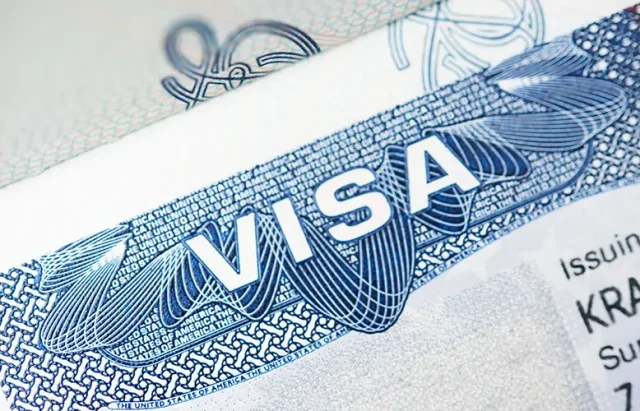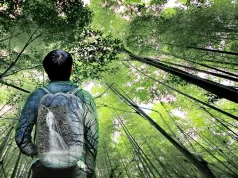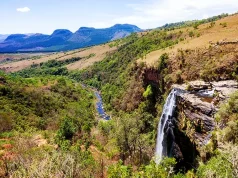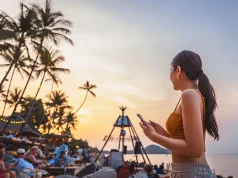
The way foreign nationals apply for B1/B2 visitor visas has been greatly changed by a major policy change released by the US Department of State. The majority of temporary guests will cease to be eligible to get third-country visas after September 6, 2025, when no more B1/B2 visa negotiations will take place at the home country of residence of the applicant. This policy decision will directly impact millions of potential visitors across the world, which is one of the biggest changes in the US visa processing procedures in recent times.
Revolutionary Policy Shift: No More Third-Country Applications
The new rule requires applications for nonimmigrant visas (as in the case of a B1/B2 visitor visa) to be filed at the applicant’s home country or place of nationality. The many-year-old tradition of seeking a US visa in other countries that has been used by many tourists due to convenience or time is being halted immediately.
Foreign people are no longer allowed to apply for visas in their home countries or other preferred places under the updated limits. Instead, they have to revert back to their lands or in countries where United States does not actively carry the visa processing, to specific foreign missions. Business travelers, vacationers and other short time visitors, irrespective of their visa status or purpose of traveling are equally affected by such change.
Travel support platforms, including Atlys, already adapt their offers to help the applicants to cope with these new geographical constraints and ensure that tourists know where they can officially submit their application.
Impact on Global Visa Processing Centers
For nationals of nations where the US has stopped regular visa processing, the policy change offers special hurdles. Cuban people must now apply through Georgetown, Guyana, while Afghan hopefuls must now call the US embassy in Islamabad, Pakistan. Iranian people are expected to utilize Dubai, United Arab Emirates, whilst Venezuelan prospects are sent to Bogota, Colombia.
Due to this geographic rearrangement, applicants who previously counted on more realistic third-country choices may experience practical challenges since B1/B2 visa talks must now take place in the applicants’ home country or approved processing facilities. Regular business travelers who may have previously booked interviews during foreign trips are most affected by the shift.
Belarusian nationals are now led to Vilnius, Lithuania, or Warsaw, Poland, whilst Russian hopefuls must now use Astana, Kazakhstan, or Warsaw, Poland. The US government’s careful approach to supporting visa services while responding to security and political issues is obvious in these approved places.
Processing Time and Appointment Availability Concerns
It is expected that processing times and appointment availability will be greatly affected by the centralization of visa applications to home countries. As candidates who previously scattered their applications over numerous nations increasingly focus on select regions, consulates in high-demand areas may suffer an increase in workload.
Longer wait times for interview dates are forecast by embassy officials, especially in nations with large applicant groups. Depending on region and demand, processing lengths could run from seven days to more than two years, according to the Department of State’s appointment wait time tool.
To assist applicants in keeping track of appointment availability and plan their applications as quickly as possible under these new geographic boundaries, professional visa aid businesses, such as Atlys, are adopting specialized tracking systems.
Financial and Logistical Implications for Applicants
The policy tweak matches with greater rises in the cost of US visas, in addition to location restrictions. On October 1, 2025, a $250 visa integrity cost is expected to be added to the current $185 B1/B2 visa application price for the majority of nonimmigrant applications.
Additionally, nearly all applicants—regardless of age or past visa history—must attend in-person interviews now that interview exemptions have been removed for applicants who must travel to particular diplomatic places, this rule, along with the geographic limits, results in higher travel and hotel expenses.
Certain application groups are also taxed financially by the Visa Bond Pilot Program, which currently targets nationals from specific countries and asks refundable fees ranging from $5,000 to $15,000.
Strategic Timing and Future Implications
The 2026 World Cup and the 2028 Olympic Games in Los Angeles, which are going to be hosted in the United States, are some of the upcoming big international events that align with these changes in regulation. Experts in the industry fear that the combination of an increased price, a spatial restriction, and a processing delay will fail to allow any potential visitors to attend these popular events.
The US government’s overall immigration tightening policy, which prioritizes increased security screening and compliance tracking over candidate comfort, is mirrored in the rule that B1/B2 visa hearings now take place in the applicants’ home country.
In order for potential travelers to properly cross the shifting territory, these changes require early planning, bigger expenditures, and cautious teamwork with expert visa help providers.





